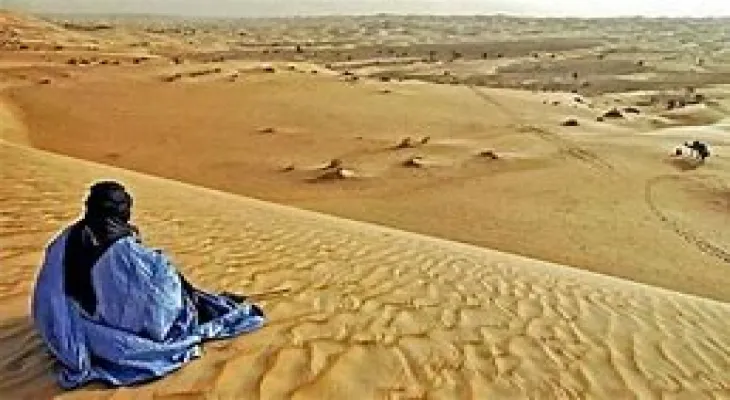Search here
Newspaper
Search here

Arab Canada News
News

Published: July 17, 2023
Israeli Prime Minister Benjamin Netanyahu informed the Moroccan King Mohammed VI "that Israel has decided to recognize Moroccan sovereignty over Western Sahara," according to an announcement by the royal palace in Rabat on Monday.
According to a statement issued by the royal palace, Israel is positively considering establishing a consulate in the Saharan city of Dakhla as part of implementing the decision.
Last month, National Security Council Chairman Tzachi Hanegbi met with the country's Foreign Minister Nasser Bourita in Morocco, and Reuters reported at the time that Hanegbi discussed with Bourita the possibility of Israel officially recognizing Moroccan sovereignty over the politically disputed Western Sahara.
Israel did not comment on what was published at that time, but the Prime Minister's office was briefed on the meeting between Hanegbi and Bourita, noting that they discussed advancing the shared vision of the Moroccan King Mohammed VI and Israeli Prime Minister Benjamin Netanyahu to enhance cooperation between the two countries in foreign affairs and security fields.
Israel and Morocco have established permanent diplomatic relations as part of the Abraham Accords, and both countries have joint diplomatic missions, but Israeli recognition of Moroccan sovereignty over Western Sahara could lead to the advancement of relations and the opening of official embassies. On the other hand, this recognition may conflict with the policies of the U.S. administration and some Western European countries on this issue.
The conflict over the Saharan region has continued for nearly five decades; this area is rich in phosphates, and oil deposits can be found along its coasts. Between half a million and 600,000 Sahrawis live in the lands on the western edge of Africa, between Morocco and Mauritania, which was a Spanish colony in the 19th century and was annexed by Rabat in 1975.
For 16 years, the Moroccan army participated in the conflict against Polisario Front fighters until a ceasefire agreement was reached in 1991. A referendum on Sahrawi independence was supposed to take place a year later, but it did not happen due to Moroccan opposition to the proposed census. Since then, Rabat's stance has been that no vote should be held and that the only solution is autonomy.
On the other hand, Algeria supports the Polisario Front, while only a few countries recognize Western Sahara's independence. Most countries around the world support the United Nations' position that the dispute should be resolved through mediation. In October, the Security Council approved extending the mandate of the United Nations Mission in Western Sahara, which is pushing for a referendum on Sahrawi independence, and the United States, under the Biden administration, voted to extend the UN mandate.
In late 2020, the United States announced recognition of Moroccan sovereignty over Western Sahara under the Trump administration, and the Biden administration did not retract this recognition but prefers to follow a diplomatic path to resolve the dispute through UN mediation, which has caused tensions between Washington and Rabat.
Comments